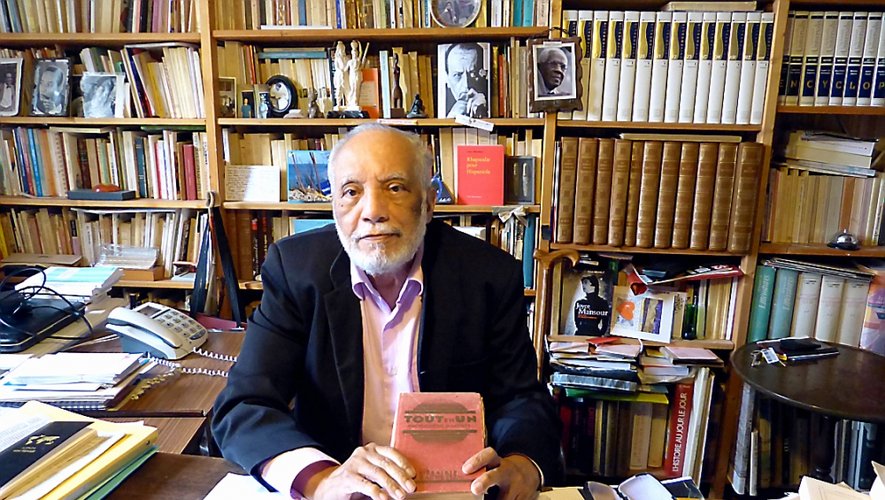|
Getting your Trinity Audio player ready...
|

Introducing Boisrond-Tonnerre’s Mémoires pour servir à l’histoire d’Hayti (1804)
By Asselin Charles
Haiti may well be one of the most historically important nations in the Americas, notwithstanding current global perceptions of the first Black republic as a hopelessly beleaguered polity. The western third of the second largest Caribbean island has been the site of several turning points in modern history, a place where world affecting events unfolded and where Hegelian world historical figures contributed to the making of the political and economic architecture of the modern world. Haiti is where the first European settlement in the Americas was established. It is the crossroads where, as Alejo Carpentier has remarked, all the races of humanity met for the first time. It is the birthplace of the colonial system that bound the Americas to Europe and Africa in the triangular trade that eventually spawned modern capitalism. Finally, it is the battlefield where the colonial system was successfully challenged through a revolution carried out by the enslaved Blacks of the French colony of Saint-Domingue in order to create the independent nation state of Haiti on January 1st, 1804.
This seismic event, which upended the geoeconomic and geopolitical structure set up by Europe between the 16th and 18th centuries, was announced to the world in two important documents: the Acte d’indépendance, signed by the generals of the revolutionary army, and the Proclamation de Dessalines, general-in-chief of the victorious Black troops and Father of the newborn nation. Both documents were written by Dessalines’s secretary, Boisrond-Tonnerre, who had distinguished himself by his bravery at key battles in the twelve-year war (1791-1803) of liberation. Boisrond-Tonnerre was assigned to write the Declaration of Independence by Dessalines who considered him the member of his staff most capable of expressing the newly liberated Haitian people’s aspirations and the soldier whose thoughts and sentiments were closest to his own. History records that Dessalines had rejected several texts submitted to him at a general staff meeting because they were either clichéd echoes of French revolutionary discourse or pale pastiches of the American Declaration of Independence. Dessalines chose Boisrond-Tonnerre for the historic task of penning the new nation’s founding document when the latter stood up and said, in the hyperbolic revolutionary language of the time, “To write this Declaration of Independence we need the skin of a White man for parchment, his blood for ink, and a bayonet for pen.”
Clearly Boisrond-Tonnerre is an important historical figure not only as the author of Haiti’s Declaration of Independence, but also as a major actor in the war of liberation and a privileged witness to the creation of a Black nation state whose resilience still constitutes a challenge to the world constructed by Europe and its offshoots. Hence the significance of his Mémoires pour servir à l’histoire d’Hayti (1804). This relatively short memoir (106 pages) presents an engaging self-portrait of Boisrond-Tonnerre as a heroic soldier and passionate lover of liberty. At the same time, it provides insights into the ideology and value system that sustained him, his comrades in arms (Toussaint, Christophe, Pétion, and other leaders of the revolutionary army) as well as the African foot soldiers during the long war of liberation, enabling them all to overcome contradictions, betrayals, and internal conflicts for the ultimate triumph of the revolution. The work also acquaints readers with the adversaries of the Black revolutionaries, the French generals, soldiers, and officials, defenders of the slave plantation system that had made Saint-Domingue the richest and most productive European colony. In a forceful, passionate yet elegant style Boisrond-Tonnerre channels for posterity not only the thought of the Founder, General Dessalines, but also the will and aspirations of the nation itself. Altogether the Mémoires may be read as one of the earliest models of both anticolonial and postcolonial discourses, and an exemplar of the ideological stances that would inspire Latin American independence fighters and rebelling slaves in the United States in the very aftermath of Haiti’s independence, as well as anticolonial freedom fighters throughout the Global South in the second half of the 20th-century.
For all these reasons Boisrond-Tonnerre’s Mémoires pour servir à l’histoire d’Hayti is a very important text in modern history. It is therefore a work that is worth sharing with a large readership, a book that must be read not only by schooled Haitians who still have to discover so many unknown aspects of their national history, but by people around the world who thirst after a fuller understanding of the making of the modern world and the still ongoing struggle for the liberation of all the nations and peoples.
The few pages of Boisrond-Tonnerre’s Mémoires excerpted here should give our HDNdigest readers an inkling of the rhetorical power and ideological force of the first book published in independent Haiti. This excerpt is an invitation to engage further with this spellbinding work at their leisure.
Finally, please note: In the French excerpt reproduced here the punctuation and spelling have been kept as they are in the original. Moreover, to facilitate online reading, we have transposed Boisrond-Tonnerre’s footnotes from the bottom of the original pages to the end of the excerpt in consecutive order.
Bonne lecture meanwhile!
Bonne lecture!
If you have any comments or suggestions, do not hesitate to write to us. In advance, thank you very much.






